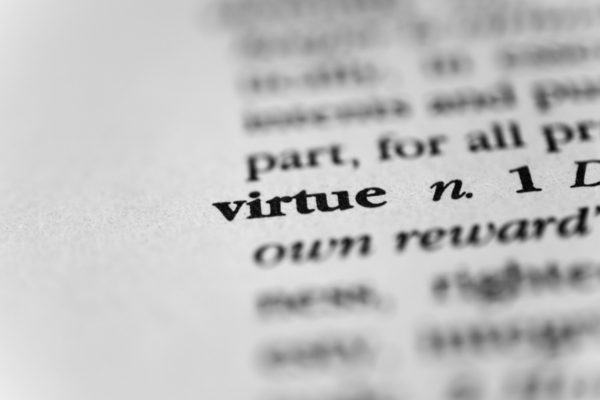Limited government is the playing field on which self-government can prosper. The ironic conflict at the heart of self-governance, however, is one between freedom and right living. We must realize that limited government is not enough for even in the freest nation, freedom can and will be lost if the people abuse it by the way they live.
So, in addition to limited government, we need something more: virtue.
If a citizenry has no virtue, it will, paradoxically, use its freedom to destroy its freedom. Here’s what I mean:
In order to maintain a healthy society, the people must voluntarily take on certain responsibilities. These include, for example, keeping their elected officials accountable, serving and providing for their communities (rather than relying on the government to do so), and raising their kids conscientiously.
Our constitutionally-limited government can not force us to do any of these things. We must embrace the responsibility of our own accord.
Previously, I wrote of this delicate dichotomy between perfect freedom and virtue:
There is a famous, oft-repeated axiom derived from John Locke’s Second Treatise of Civil Government: liberty is not license.
Just because you’re free to do something does not necessarily mean you should. And if you do – allowing yourself to be dictated by your own base desires in the process – you will eventually and inevitably be deprived of your liberty, becoming enslaved to what Plato called the eros or the appetitive soul.
This idea has revolutionized the post-Locke western world. When John Adams said the American system of governance was “wholly inadequate” for anyone but “a moral and religious people,” he meant that freedom must exist within the framework of an objective moral law – the laws of nature – or it would self-destruct.
This is, in essence, the definition of self-governance. Or, more precisely, what self-governance ought to look like in a Constitutionally-limited republic. Americans are not truly free to do whatever they want, and if they were, we wouldn’t actually be free at all.
But there is more to Locke’s distinction between liberty and license than mere self-restraint.
For generations, Americans have understood duty and responsibility to be essential to the future of their self-governing republic. More than just a list of what we shouldn’t do, we must also accept the obligations of what we ought to do.
It is virtue that tells us what to do and what not to do in a society where we are technically free to do whatever we want. Without it, we will pervert our “freedom” to live intemperate, irresponsible lives.
In part one of this series, I referenced what author Eric Metaxas referred to as “the muscles necessary for freedom,” which he argued the early American colonists possessed due to decades of governing themselves.
In If You Can Keep It, he went on to write that “tied to this [the freedom muscle] was a general tendency toward certain attitudes and behaviors — toward what we might call “virtue.” This was largely due to the success of the Reverend George Whitefield, who had traveled throughout the colonies for several decades, preaching the basic Christian idea that each person could have a direct relationship with God. . . . In the four decades of Whitefield’s ministry many revivals had broken out, and by 1776, many Americans were deeply serious about God. So they generally behaved well not because they were compelled by government, but because they were directly responsible to God for their behavior. They did what was right without being forced. This,” Metaxas concludes, “was the secret formula to liberty.”
There is, admittedly, a lot people can get away with in a free society. But if we are to remain free, we must do that which is good “without being forced.” Remember, if we fail to control ourselves, government will assuredly find reason to do it for us.
So, if we want to keep Washington off our backs, we see now we need at least three things: the freedom muscle (which is built by exercising it through self-governance), a limited government (the playground for a self-governing people), and virtue (without which those people would not know how to behave).
Amazingly, we can begin working toward all three of those things by calling an Article V Convention of States, which would restore our limited government and give the people the opportunity to practice their civic responsibilities. To get involved, sign the Convention of States petition below!






